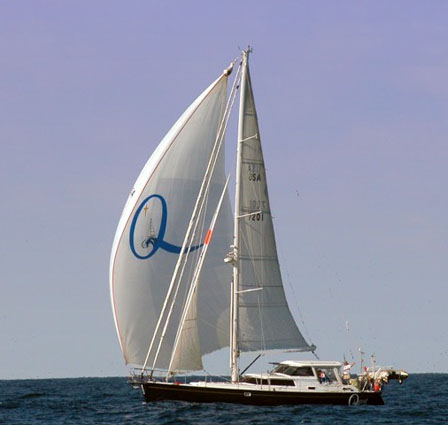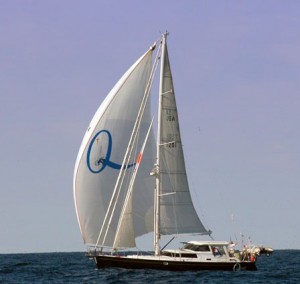Firms in Fed’s Beige Book Fret Over Any Lengthy Baltimore Port Closure
(Bloomberg) — The closure of one of the East Coast’s busiest ports after the collapse of Baltimore’s Francis Scott Key Bridge has so far not led to broad price increases,...




The 14 men–13 Somalis and one Yemeni–were captured by U.S. Navy Seals who stormed the 58-foot Quest four days after it was hijacked while sailing from India toward Oman. Navy officers were negotiating for the release of the American sailors, but the four were killed before the assault force could storm the ship.
The men were indicted on one count of piracy, one count of conspiracy to commit kidnapping, and the use of a firearm during a crime of violence. They were not charged with murder, but the indictment stated that “at least three of the defendants on board the Quest intentionally shot and killed” the U.S. citizens.
(This story and related background material will be available on The Wall Street Journal website, WSJ.com.)
U.S. Attorney Neil McBride said that the investigation will continue and that “additional future charges are possible.” He noted that the other charges include hefty sentences: Up to life in prison for kidnapping and a minimum of 30 years for the weapons charges.
The American sailors–Scott Adam, Jean Adam, Phyllis Macay, and Bob Riggle–were completing an around-the-world voyage, and just days before the pirate attack had separated from a group of fellow sailors to chart their own course toward Oman.
The alleged pirates appeared in court Thursday afternoon to hear the charges. A detention hearing will be held in about one week, and a trial could begin this summer.
The killings have highlighted the threat from pirates operating from Somalia and threatening an ever-widening swath of the Indian Ocean. There have been more than 90 pirate attacks worldwide this year, according to the International Maritime Bureau, with most of those coming off the coast of Somalia.
Last week, pirates unsuccessfully attacked a chemical tanker and a container ship, according to the IMB. In addition, the Maersk Alabama–the cargo ship famously attacked in April 2009 whose American captain was taken hostage and later rescued from a lifeboat by Navy Seal snipers–was attacked this week for the third time in two years.
The U.S. has proven willing to prosecute pirates when U.S. ships and sailors are involved and the cases are clear-cut.
However, battling pirates in courtrooms is tougher for the bulk of attacks in the Indian Ocean. Few countries in the region are willing and able to prosecute pirates. Western countries whose warships patrol the area, meanwhile, are loath to prosecute without an abundance of evidence–often hard to gather when pirates disguise themselves as fishermen. Numerous European and American warships have caught and released pirates for lack of evidence in recent years.
“It’s the problem of the dog catching the car: What do you do when you catch the pirates?” said Terrence McKnight, a retired U.S. admiral who set up the first anti-piracy task forces in the Indian Ocean in 2007.
To stem the rising number of attacks, Mr. McKnight proposes increasing aerial surveillance and naval patrols closer to the Somali region of Puntland, from where most pirate skiffs depart.
“We’re just waiting and reacting, instead of being proactive,” he said.
-By Keith Johnson, The Wall Street Journal
Join the gCaptain Club for curated content, insider opinions, and vibrant community discussions.


Join the 105,954 members that receive our newsletter.
Have a news tip? Let us know.
Access exclusive insights, engage in vibrant discussions, and gain perspectives from our CEO.
Sign Up




Maritime and offshore news trusted by our 105,954 members delivered daily straight to your inbox.



Essential news coupled with the finest maritime content sourced from across the globe.
Sign Up